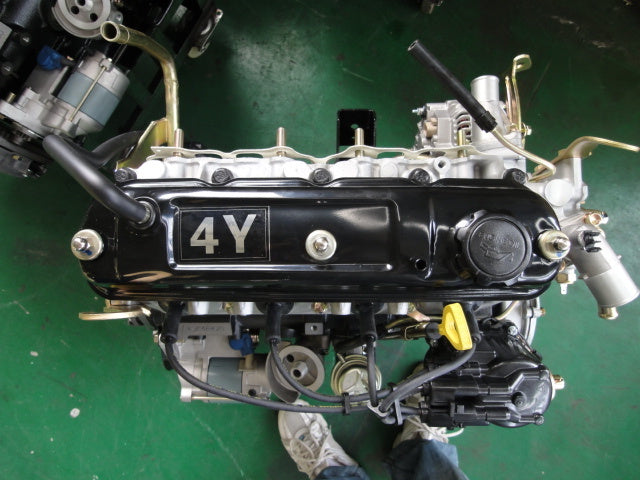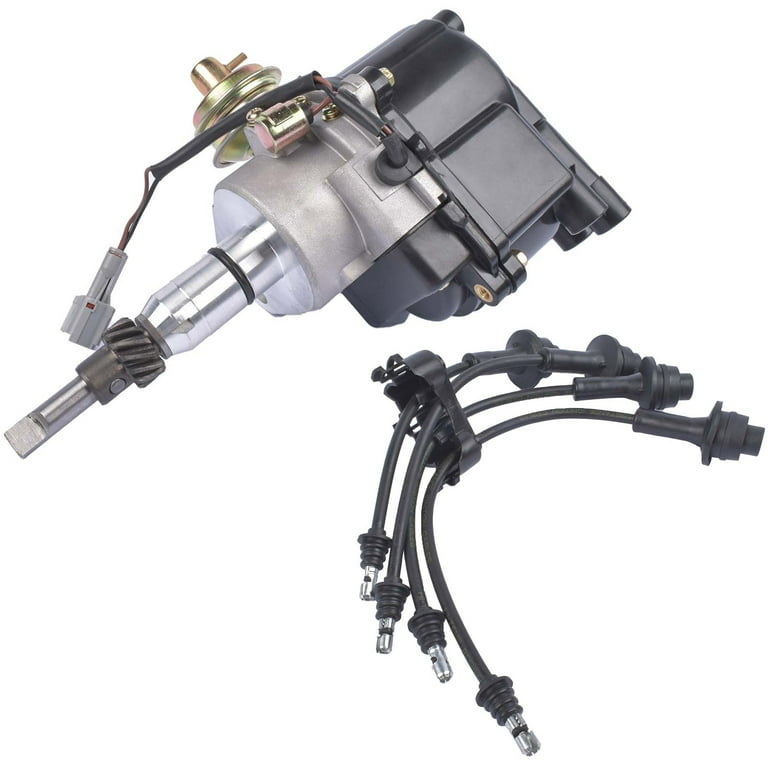How the 4Y Engine Compares to Other Engines in Terms of Fuel Efficiency
How the 4Y Engine Compares to Other Engines in Terms of Fuel Efficiency
Blog Article
Checking Out the Various Kinds Of Engine: Which One Fits Your Needs?
In the pursuit to figure out one of the most appropriate engine type for your certain needs, it is essential to review the unique qualities and advantages of each choice readily available. Interior burning engines continue to control due to their reliability, while electric engines are gaining grip for their sustainability. Hybrid engines use a functional concession, and diesel engines stand out for their power popular applications. Additionally, alternate fuel engines existing cutting-edge services, albeit with particular constraints. Understanding your priorities will contribute in this decision-making procedure, causing an exploration of elements that might affect your choice.

Inner Burning Engines
Internal burning engines (ICEs) are the foundation of contemporary transportation, powering a large range of cars from autos to airplanes. These engines operate on the concept of transforming fuel into mechanical energy through a collection of controlled explosions within a burning chamber. One of the most common kinds of ICEs consist of gasoline engines, diesel motor, and rotary engines, each developed to satisfy certain performance and effectiveness demands.
Fuel engines usually utilize spark ignition, while diesel engines depend on compression ignition, leading to distinctive differences in fuel performance and power output (4y engine). Rotating engines, or Wankel engines, offer a portable design and smooth operation, but are much less commonly made use of in mainstream applications
ICEs have actually undertaken significant developments in innovation, consisting of the introduction of turbocharging and fuel shot systems, which improve total efficiency and performance. In spite of their performance enhancements, ICEs deal with increasing analysis due to their ecological influence, especially relating to greenhouse gas discharges.
Electric Engines
As problems regarding ecological sustainability and fossil fuel dependence expand, electrical engines have become an engaging alternative to interior burning engines. These engines utilize electrical motors powered by batteries or gas cells, giving a cleaner and much more reliable motive powers.
One of the primary advantages of electric engines is their minimized discharges. Unlike typical engines that burn fossil fuels, electrical engines generate zero tailpipe discharges, substantially reducing air pollution and adding to improved public wellness. Additionally, the performance of electric motors typically exceeds that of interior burning engines, transforming a better percentage of power from the power source into usable power for movement.
Electric engines are also remarkable for their quiet procedure, making them suitable for city atmospheres. 4y engine. The simplicity of their design causes fewer relocating components, which can lead to lowered upkeep prices and increased integrity gradually
Nonetheless, difficulties continue to be, including battery manufacturing influences, billing facilities, and variety limitations. Despite these obstacles, the expanding investment in electric lorry modern technology and sustainable energy sources points toward an encouraging future for electrical engines, placed to play an important function in the transition toward sustainable transport.
Crossbreed Engines
Blending the benefits of both electric and traditional interior burning engines, hybrid engines stand for a functional service in the pursuit for efficient and lasting transportation. These engines incorporate a gasoline or diesel engine with an electrical motor, allowing for enhanced gas efficiency and decreased discharges compared to traditional lorries.
Crossbreed engines run in a number of settings, utilizing the electrical motor for low-speed driving and the internal combustion engine click here for info for greater speeds or when even more power is needed. This dynamic procedure not only improves fuel economy but additionally adds to a smoother driving experience. Regenerative stopping is an additional important function, capturing energy typically lost throughout stopping and rerouting it to recharge the battery.

As customers progressively focus on eco-friendliness, hybrid engines stick out as a practical selection, providing an efficient balance of efficiency, performance, and ecological obligation. This flexibility makes them suitable for urban travelling and long-distance traveling alike.
Diesel Motor
Performance and power are hallmarks of diesel motor, which have actually long been favored for their robustness and fuel economic situation. These engines operate on the concept of compression ignition, where air is compressed to a heat before fuel is injected, igniting it without the demand for spark plugs. This procedure makes it possible for diesel engines to attain greater thermal performance compared to gasoline engines, equating right into better fuel mileage and reduced carbon dioxide discharges.
Diesel motor are particularly appropriate for sturdy applications such as vehicles, buses, and industrial equipment, where torque and toughness are extremely important. Their design commonly consists of stronger parts to withstand the greater pressures produced throughout operation, causing longer life span and reduced maintenance prices.

Alternate Fuel Engines
While diesel engines have long dominated the landscape of sturdy power sources, alternate gas engines are acquiring grip as viable choices for an extra sustainable future. These engines use a selection of fuels, such as pressed gas (CNG), ethanol, propane, and hydrogen, intending to decrease greenhouse gas exhausts and dependence on nonrenewable fuel sources.
One significant benefit of different gas engines is their potential to reduced carbon impacts. For instance, CNG engines give off less toxins contrasted to traditional diesel engines, making them appropriate for urban transportation systems and fleets seeking to improve air high quality. Ethanol, originated from biomass, not just lowers exhausts however additionally supports agricultural economic situations.
Hydrogen gas cells represent a sophisticated development in this world, offering zero-emission power with a chemical response between hydrogen and oxygen. Challenges such as facilities development and production expenses continue to be barriers to prevalent adoption.
Verdict
Internal combustion engines provide integrity, while electrical engines prioritize sustainability and decreased maintenance. Hybrid engines combine the advantages of both, improving efficiency, whereas diesel engines supply remarkable power and torque for durable applications.
Hybrid engines provide a functional concession, and diesel engines stand out for their power in demanding applications. The most typical types of ICEs consist of gas engines, diesel engines, and rotary engines, each designed to meet specific performance and performance demands.
Unlike typical engines that shed fossil fuels, electrical engines produce absolutely no tailpipe emissions, significantly lowering air pollution and adding to improved public wellness.Hybrid engines operate in a number of modes, utilizing the electrical motor for low-speed driving and the internal combustion engine for greater speeds or when even more power is required. Hybrid engines integrate the benefits of both, improving efficiency, whereas diesel engines supply exceptional power and torque for durable applications.
Report this page